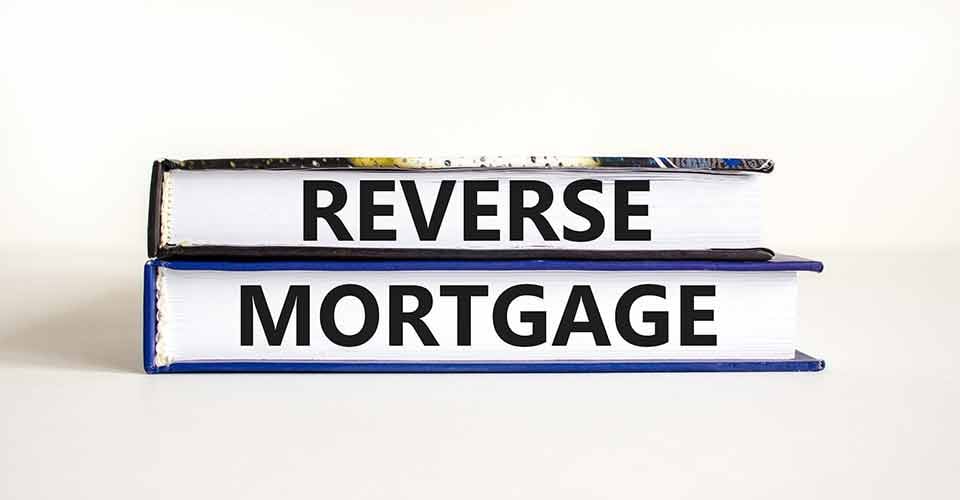The Truth about Reverse Mortgages in 2023
Are you considering a reverse mortgage, but feeling confused or skeptical about the process? You're not alone. Many people have heard mixed messages about reverse mortgages, and it can be difficult to separate fact from fiction.
In this blog, we'll take a deep dive into the truth about reverse mortgages – and we promise, no BS. We'll address common concerns and misconceptions, and help you understand whether a reverse mortgage could be a good option for you.
So, let's get started and clear up the confusion!
YOU Own Your Home
When it comes to reverse mortgages, there is a lot of misinformation out there. Many people believe that if they take out a reverse mortgage, they are essentially selling their home to the bank.
This couldn't be further from the truth. In fact, the title to your home always remains in your name, and it passes to your heirs when you pass away.
This means that you are not giving up ownership of your home – you are simply using the equity that you have built up in your home over the years to access cash.
It is important to note that while you are living in the home, you are still responsible for paying property taxes, insurance, and any other fees associated with homeownership.
However, the reverse mortgage does not need to be repaid until you permanently move out of the home. At that point, the loan becomes due and payable, but you or your heirs can choose to sell the home to repay the loan or refinance the loan to keep the home.
It is also important to understand that the amount of the loan is based on the equity in your home, your age, and the current interest rates. The older you are, the more equity you have, and the lower the interest rates, the more money you may be able to access through a reverse mortgage.
Unfortunately, there are still some people who believe that if they take out a reverse mortgage and pass away shortly thereafter, their family will lose all interest in the home.
This is simply not true. If you pass away, your heirs will inherit the home and have the option to repay the reverse mortgage and keep the home or sell the home to repay the loan.
Getting the Funds
When it comes to a reverse mortgage, one of the biggest advantages is the flexibility you have in how you receive your funds.
There are several ways to receive your proceeds, and you can choose the option that works best for you and your financial needs.
One popular option is to receive a lump sum distribution, which means that you receive all of your funds at once in a single payment.
This can be a great option if you have a large expense that you need to pay off or if you want to make a significant investment in your home or retirement.
Another option is to receive a monthly payment, which can provide you with a steady stream of income to supplement your retirement savings.
This can be especially helpful if you are on a fixed income and need to budget your funds carefully. You can choose to receive your monthly payments for a set period of time or for as long as you live in the home.
A third option is to leave your funds in a line of credit that you can access when you need it. This can be a great way to have funds available for unexpected expenses or to supplement your retirement income when you need it.
The line of credit works similar to a Home Equity Line of Credit (HELOC), where you only pay interest on the portion of the loan that you actually borrow.
Once you start the reverse mortgage, you only pay interest on the portion of the loan that you borrow. This means that if you have a line of credit available for $100,000 but only take out $10,000 to do some work on your home, you will only pay interest on the $10,000 that you actually received, not on the money that you have left in the line of credit.
Reverse Mortgage Counseling
There's a lot of misinformation out there about reverse mortgages, and unfortunately, some of it comes from well-meaning but uneducated sources.
While it's important to do your homework and understand the terms of any loan you're considering, it's also crucial to get accurate information from reputable sources.
This is especially true when it comes to reverse mortgages, which can be a great option for some seniors but are not the right choice for everyone.
One of the best ways to get accurate information about reverse mortgages is to talk to a counselor approved by the Department of Housing and Urban Development (HUD).
These counselors can provide free counseling and help you understand the real story of reverse mortgages so you can make an informed decision about whether this is the right loan for you.
By talking to a HUD-approved counselor, you can get answers to all of your questions and learn about any potential drawbacks or risks associated with a reverse mortgage.
Unfortunately, there are still too many horror stories circulating about reverse mortgages that are simply not true.
But the truth is that a reverse mortgage is a legitimate financial product that can be a great option for seniors who own their homes outright and are looking for a way to supplement their retirement income.
If you've heard negative things about reverse mortgages and are unsure whether they're the right choice for you, I would encourage you to contact HUD, AARP, or the National Reverse Mortgage Lenders Association (NRMLA) to get the real facts.
These organizations can provide you with accurate information and help you make an informed decision about whether a reverse mortgage is right for you.
Of course, keep in mind that a reverse mortgage may not be the best choice for everyone. Like any financial product, it has its pros and cons, and you'll need to weigh these carefully before making a decision.
But by getting accurate information and understanding the real terms of the loan, you can make an informed decision that's right for you and your financial situation.
Don't let misinformation and horror stories scare you away from considering a reverse mortgage. Instead, do your homework, talk to a HUD-approved counselor, and get the real facts.
With the right information and guidance, you can make an informed decision that will help you achieve your retirement goals and live the life you want.

Is a reverse mortgage a scam?
Many people wonder whether a reverse mortgage is a scam, but it is important to understand that a reverse mortgage is a legitimate loan product.
It operates differently from a traditional mortgage in that instead of making monthly payments to pay off the loan over a set period, with a reverse mortgage, interest and payments are deferred until the loan reaches maturity.
The loan works in the reverse of a traditional mortgage, hence the name. The borrower receives payments from the lender based on the value of the equity in their home.
The amount the borrower receives depends on factors such as the age of the borrower, the value of the home, and the interest rate of the loan.
The borrower is not required to pay back the loan until they no longer live in the home, either because they have passed away or moved out permanently.
It is important to note that a reverse mortgage is not for everyone, and it is important to carefully consider whether it is the right option for your financial situation.
The loan can be beneficial for those who need additional income to cover expenses in retirement or who want to use the equity in their home to pay for medical expenses, home repairs, or other needs.
However, the loan can also come with high fees and interest rates, which can add up over time and reduce the equity in your home.
How do reverse mortgages really work?
A reverse mortgage is a financial product designed for homeowners who are at least 62 years old and have significant equity in their homes.
With a reverse mortgage, the borrower can access that equity without having to sell their home or make monthly mortgage payments.
Instead, the borrower receives a lump sum, monthly payments, or a line of credit that they can draw upon as needed.
Unlike a traditional mortgage, the borrower does not have to make monthly payments on a reverse mortgage.
Instead, the loan balance grows over time, as interest accrues on the loan amount and any fees associated with the loan. This means that the borrower does not have to worry about making monthly payments or facing foreclosure if they cannot keep up with payments.
When the borrower dies or moves out of the home, the reverse mortgage becomes due. At this point, the borrower or their heirs can choose to repay the loan balance and keep the home, or they can sell the home and use the proceeds to repay the loan.
If the proceeds from the sale of the home are not sufficient to repay the loan balance, the borrower or their heirs are not responsible for the difference. This is known as a non-recourse loan.
When is a reverse mortgage a good idea?
There are various situations in which a reverse mortgage can be beneficial for a homeowner. One of these scenarios is when the homeowner seeks payment relief.
If the current mortgage payments are too high to manage during retirement, a reverse mortgage can be an ideal solution for reducing this expense from the budget to achieve retirement objectives.
Another circumstance where a reverse mortgage can be useful is if the homeowner requires cash for home renovation, paying for future taxes and home repairs, preserving retirement assets, such as 401K, IRA, and other savings, or simply improving their overall quality of life.
The reverse mortgage option enables the homeowner to access the equity in their home without having to sell their property or incur additional monthly mortgage payments.
It allows them to convert a portion of their home equity into cash, which can be used for any purpose the borrower chooses.
With a reverse mortgage, homeowners receive either a lump sum, regular payments, or a line of credit. The funds do not have any restrictions or limitations, and the homeowner has the flexibility to use them for whatever they want.
A reverse mortgage can also be an excellent option for individuals who have a fixed income and require additional cash to pay for their expenses. It is also beneficial for those who do not have any heirs or are not worried about leaving an inheritance behind.
Additionally, if the property value appreciates over time, the homeowner will have additional equity, which they can use in the future or leave to their heirs.
Do you pay interest on a reverse mortgage?
Interest is indeed charged on a reverse mortgage as it is a loan. However, the way interest is paid on a reverse mortgage differs from that of a traditional mortgage.
Instead of paying interest monthly or annually, the interest is added to the loan balance and is not paid until the loan is repaid through sale, refinancing, or other means.
This means that the longer you have the reverse mortgage, the more interest will accrue, which will increase the overall loan balance.
It is important to understand the interest rates and how they work when considering a reverse mortgage as it will impact the amount owed at the end of the loan term.
Bottom Line
Reverse mortgages can be a viable option for some homeowners to access their home equity without adding monthly mortgage payments to their budget. It is important to understand the terms and obligations of a reverse mortgage and to seek out advice from trusted sources.
While there may be misconceptions and horror stories surrounding reverse mortgages, the truth is that they are a legitimate financial product designed to help seniors and retirees achieve their financial goals.
As with any major financial decision, it is crucial to do your research, consult with experts, and carefully consider whether a reverse mortgage is the right choice for your individual situation.
With proper education and guidance, a reverse mortgage can be a valuable tool to help you enjoy your retirement and maintain financial stability.
So, don't let fear or misinformation keep you from exploring the possibilities of a reverse mortgage. Instead, approach it with an open mind and a commitment to understanding the facts, and you may find that it is the solution you have been looking for to improve your financial situation in your golden years.
With over 50 years of mortgage industry experience, we are here to help you achieve the American dream of owning a home. We strive to provide the best education before, during, and after you buy a home. Our advice is based on experience with Phil Ganz and Team closing over One billion dollars and helping countless families.

About Author - Phil Ganz
Phil Ganz has over 20+ years of experience in the residential financing space. With over a billion dollars of funded loans, Phil helps homebuyers configure the perfect mortgage plan. Whether it's your first home, a complex multiple-property purchase, or anything in between, Phil has the experience to help you achieve your goals.


 By
By  Edited by
Edited by 






